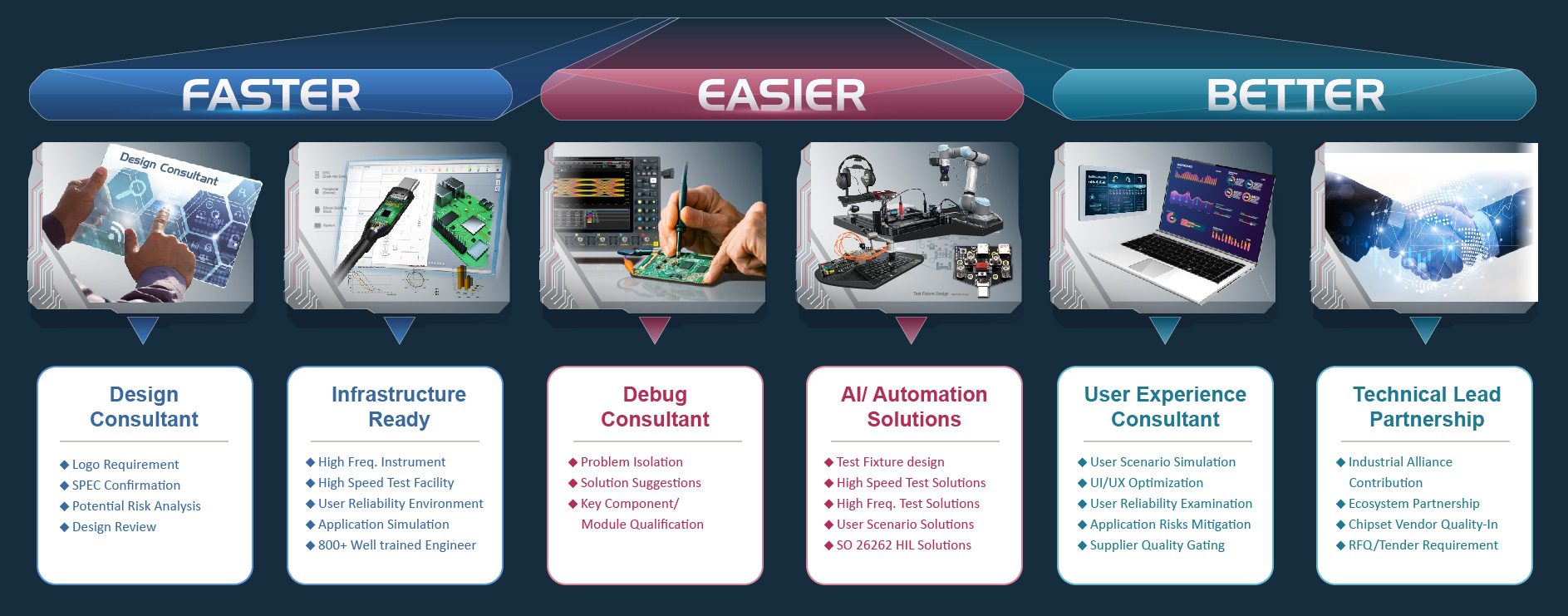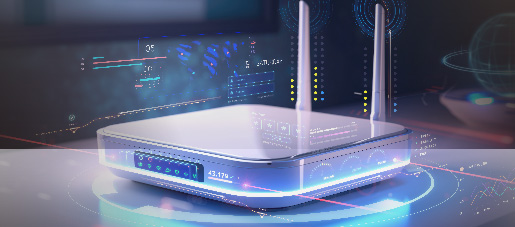There is a variety of multi-purpose chargers available today, from power banks to multi-port chargers. Chargers can now support from 2x USB to 4x USB, and some power banks can even support their own AC power. However, as more consumers purchase these products, often users run into overheating issues, melting issues, burning issues, and even explosions during the charging process. These are serious issues that directly relate to the safety of users, and it causes consumers to worry whether these products can be used unattended.
How should brands and manufacturers respond to these issues? Allion is the only laboratory in the industry that has customizable verification expertise and a USB-IF certification. We have a controllable environment laboratory built for simulation testing and we also have decades of experience working with major international charger brands and manufacturers. Here are some of the potential risks for common chargers on the market today.
The Must-know Risks of Power Banks and Chargers
1. Temperature control issues may cause burns for the user or result in cables melting
GaN technology is now the new trend in chargers. The advantage of GaN chargers is they are small and lightweight, but the disadvantage is they can heat up after usage. A very important aspect when manufacturing multi-port chargers is knowing how to balance design, temperature control, and safety. Other important aspects such as product stability and safety testing should also be considered during product development. Allion’s environment simulation testing laboratory can test the temperature control of chargers in a 23°C environment. The charger’s temperature stability can also be tested after long-term usage to ensure overheating issues are solved.
The following table contains test results for a certain GaN charger. This was tested in an environment of 23°C with all ports plugged in with devices charging.

According to medical research, when an object over 45°C touches human skin for 30 minutes or more, symptoms including redness and itching can occur. If temperatures reach 50°C, low-temperature burns can be caused after 5 minutes of contact. If temperatures reach 60-70°C, direct contact should be avoided completely. From our test data above, it shows that this product has a high risk of being returned by users after purchase and it could even physically hurt them, risking compensation costs.
2. Insufficient power when using Share Power
Our user scenario testing process can make sure each device can receive enough power when using Share Power. This testing process can also verify the logic in the programming of the charger during power distribution, ensuring the power is consistent and evenly distributed across the ports. Our team can also simulate user scenarios for different user groups and run compatibility tests for different devices and operating systems. According to our clients’ experiences, here are some common issues.
A. Power output issues
- After using Share Power on some chargers, the charging power was found to be insufficient even though the power of each port was written out in the charging profile. During testing, we increased the power of each port to its original specifications and it caused the charger to enter Over Current Protect (OCP) mode.
- After using Share Power on some chargers, the actual charging power of all the ports had higher outputs than what was written in the charging profile. For example, the product had a maximum power of 100W, but after using Share Power, all the ports added up to 110W or higher.
B. Programming logic errors
- There is a difference between the measured charging power and the specifications written on the packaging, which could mean the charger’s performance under high loads does not meet the requirements.
- Chargers with smart distribution technology can sometimes interrupt charging due to the power not being automatically allocated to the correct ports. When using Share Power, some abnormalities happen due to flaws in programming logic during different user scenarios. For example, when we were testing combinations 3 and 4 below, some devices didn’t receive power. As a result, consumers will think they have a defective product and return it.
- Combination 1: HP ZBook 15M G7 (Charging)
- Combination 2: HP ZBook 15M G7 (Charging) + Apple iPhone 14 (Charging)
- Combination 3: HP ZBook 15M G7 (Not Charging) + Samsung S22 Ultra (Charging)
- Combination 4: HP ZBook 15M G7 (Not Charging) + Apple M1 iPad Air 10.9” 5th (Charging)
3. Full Loading and Stress Monitoring
Nowadays, everyone has multiple electronic devices that need to be charged every day. Allion can provide monitoring and testing services for chargers, including full loading and stress testing. With these tests, we can make sure the charger will operate normally under high loads for long periods without overheating or causing other issues. Taking a previous client as an example, we performed full loading and stress monitoring 50 times in a row. After charging a device the device kept on making the charging notification sound over and over again. This issue was passed on to our R&D team and we summarized the following reasons.
- After some devices are fully charged, the power required from the charger becomes smaller and causes changes to the programming logic.
- Because the power is smaller than the default value of the charger’s power, the charger will stop distributing power to that specific port. However, since the device is still plugged in, it will trigger the charging notification, which happens over and over again. This issue can seriously affect the user experience for consumers.
4. Power outages or interruptions can lead to functionality failures
Power outages can sometimes happen without warning, interrupting the power going through the charger. Can chargers operate normally after this happens? This issue regarding power disconnection is a common customer complaint. Allion can run simulation tests to ensure the restoration of the charger when a power outage happens, maintaining its original power and charging speeds.
In a previous case, we discovered a certain charger was unable to operate normally after this happened.
- The power limit of the two USB-C ports could only support up to 18W (12V, 1.5A)
- One USB-A Port stopped functioning and was unable to charge anything
After this occurred, the charger could not return to normal, even if the device was removed from the charger. It only returned to normal after the charger was unplugged and reset. For normal users, this could affect the user experience and also cause them to return their products, never buying any product from this brand again.
Faster, Easier, Better: Customized Consulting Service for PC Accessories
For all the tests mentioned above, we used professional testing techniques and user scenario simulations to identify potential risks and issues from experimental data. Allion has professional experience with charger testing and has a wide range of testing equipment. Our services include charger chip development/verification, product functionality verification, compatibility verification, customer complaint verification, and more. With our consulting services, our clients can enjoy a faster, easier, and better experience, ultimately improving their sales numbers.
Faster
Allion has professional experience in USB-IF certification and USB charging compatibility testing. Whichever stage your products are in, we can assist you in carrying out certification and compatibility testing simultaneously. Our approach makes product development and the debugging process much more efficient.
- Quickly build a charging-related testing laboratory
- Quickly design development verification strategies
- Quickly obtain validation planning
- Quickly obtain USB certification planning
Easier
By implementing AI and automation solutions, Allion ensures that every test is “qualitative, quantitative, and reproducible”, helping our clients to improve product performance in a more efficient manner.
- Provides less labor-intensive testing methods
- Provides more efficient and cost-effective solutions
- Provides more accurate results
Better
With more than 30 years of expertise, specialized technical team, and comprehensive testing environments and equipment, Allion is committed to providing clients with more improved quality of service based on extensive experience of User Scenario Testing.
- Provides more complete user scenario testing solutions
- Provides more complete verification testing plans
- Professional issue isolation and debugging support

If you have any further needs for testing, verification, or consulting services related to the cable quality, please feel free to explore the services online or contact us through the online form.

































